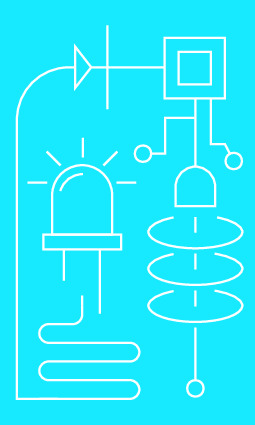|
|
|
| Module code: E2833 |
|
|
2PA (2 hours per week) |
|
2 |
| Semester: 1 |
| Mandatory course: no |
Language of instruction:
German |
Assessment:
Project, written composition mit presentation
[updated 08.01.2024]
|
E2833 (P211-0274) Electrical Engineering and Information Technology, Master, ASPO 01.04.2019
, semester 1, optional course, technical
|
30 class hours (= 22.5 clock hours) over a 15-week period.
The total student study time is 60 hours (equivalent to 2 ECTS credits).
There are therefore 37.5 hours available for class preparation and follow-up work and exam preparation.
|
Recommended prerequisites (modules):
E1973
[updated 10.10.2023]
|
Recommended as prerequisite for:
|
Module coordinator:
Prof. Dr. Marc Klemm |
Lecturer: Prof. Dr. Marc Klemm
[updated 22.09.2020]
|
Learning outcomes:
After successfully completing this course, students will be able to apply the theoretical knowledge and approaches learned in the “Hochspannungstechnik I” lecture to solve more complex high voltage measurement problems. In particular, they will be able to control the parasitic effects of extensive superstructures. They will also be able to set up and perform experiments with the equipment commonly used in high-voltage laboratories and to evaluate their results.
[updated 08.01.2024]
|
Module content:
- Measuring circuits of extended superstructures
- EMC influence of parasitic component properties (e.g. stray capacitance, parasitic inductances, etc.) Inductance, usw)
- Implementing measurement procedures for high voltage and currents
- Evaluating high voltage measuring systems
[updated 08.01.2024]
|
Teaching methods/Media:
Work at the blackboard, presentations
[updated 08.01.2024]
|
Recommended or required reading:
Beyer, Zaengl, Böck; Möller; Hochspannungstechnik, Springer-Verlag
A. Küchler; Hochspannungstechnik; Springer-Verlag
G. Hilgarth; Hochspannungstechnik; Teubner-Verlag
Böhme; Mittelspannungstechnik; Verlag Technik, Berlin
Sirotinski; Hochspannungstechnik, Band 1&2; Verlag Technik, Berlin;
M. Klemm; Skripe Hochspannungstechnik 1 & 2; Hochspannungsmesstechnik
[updated 08.01.2024]
|


